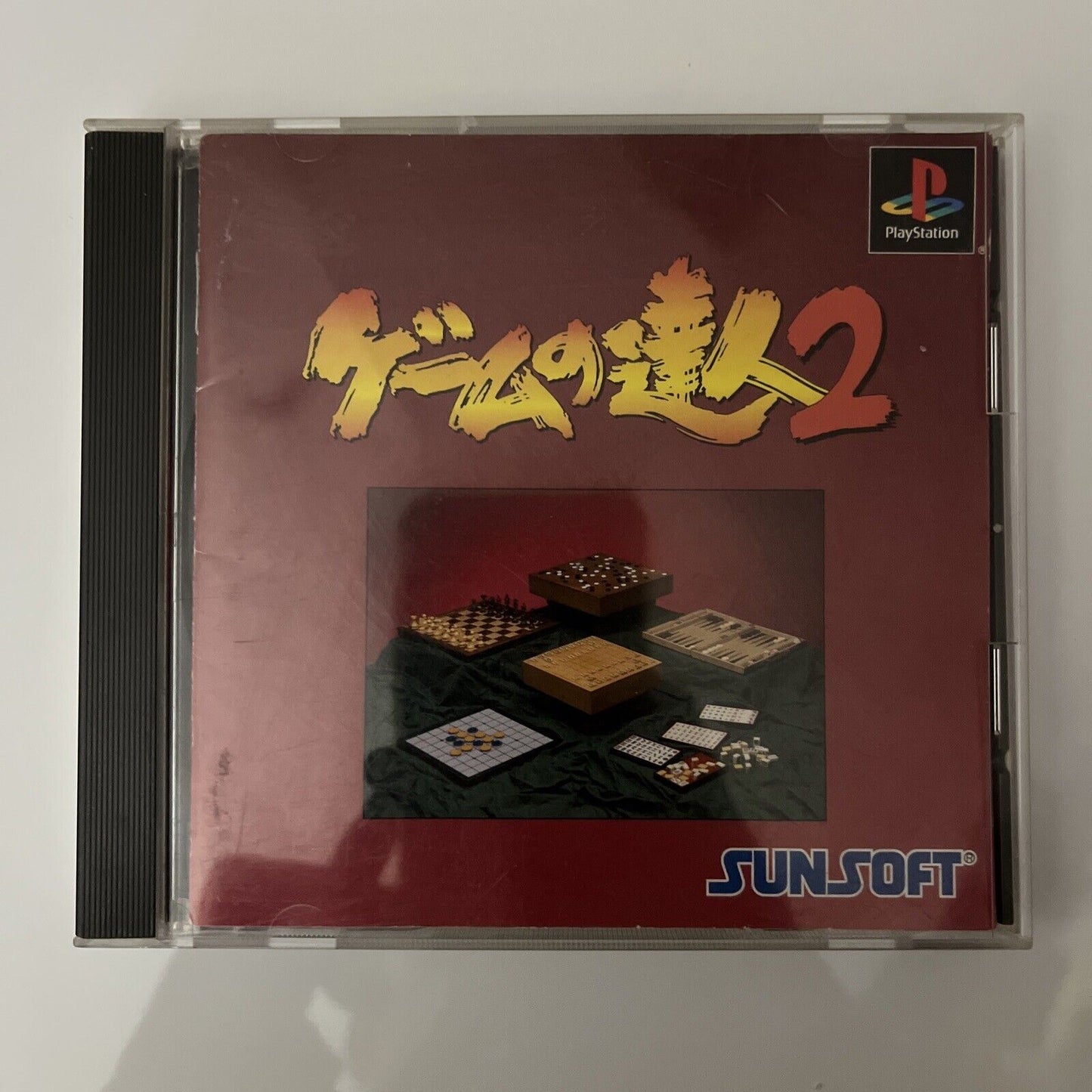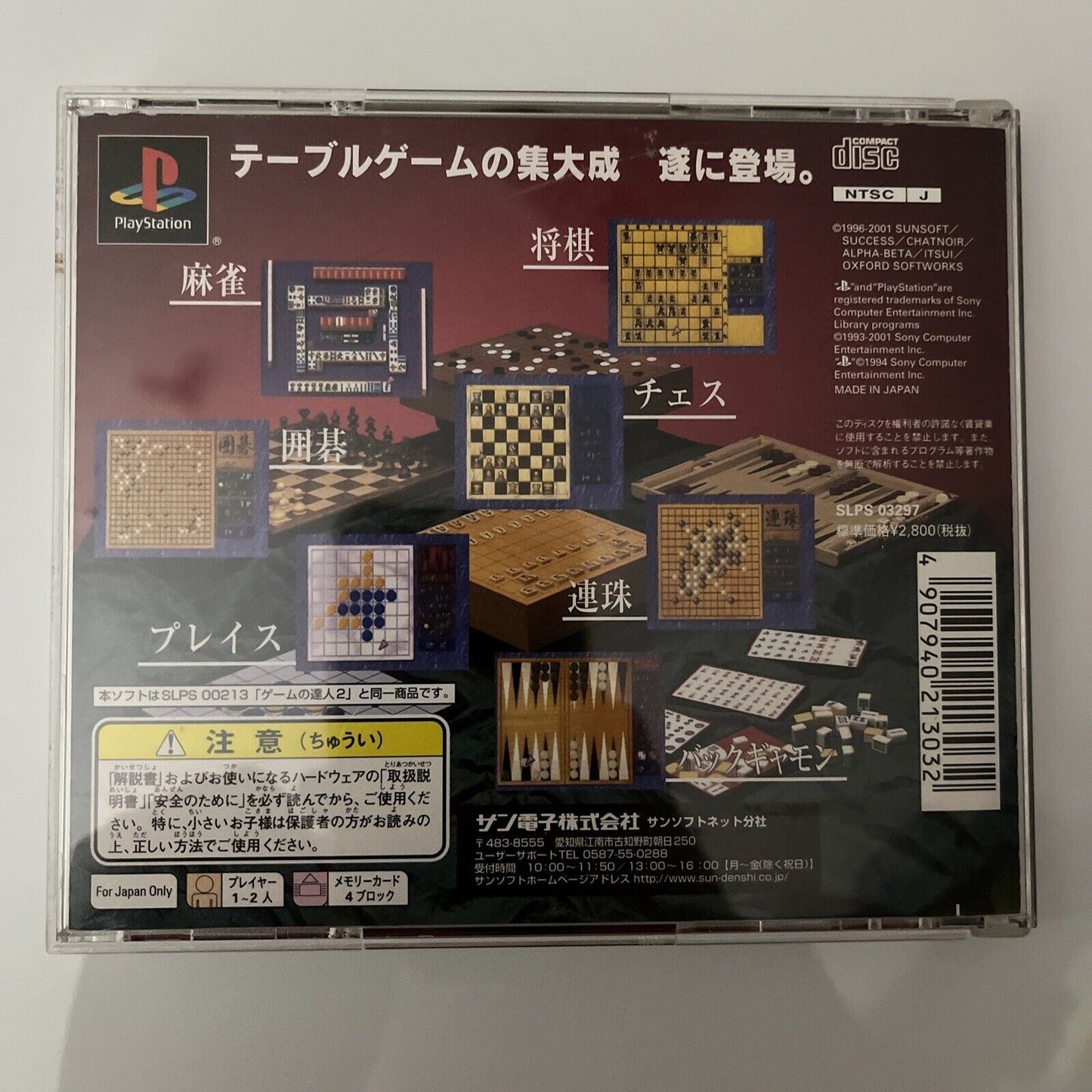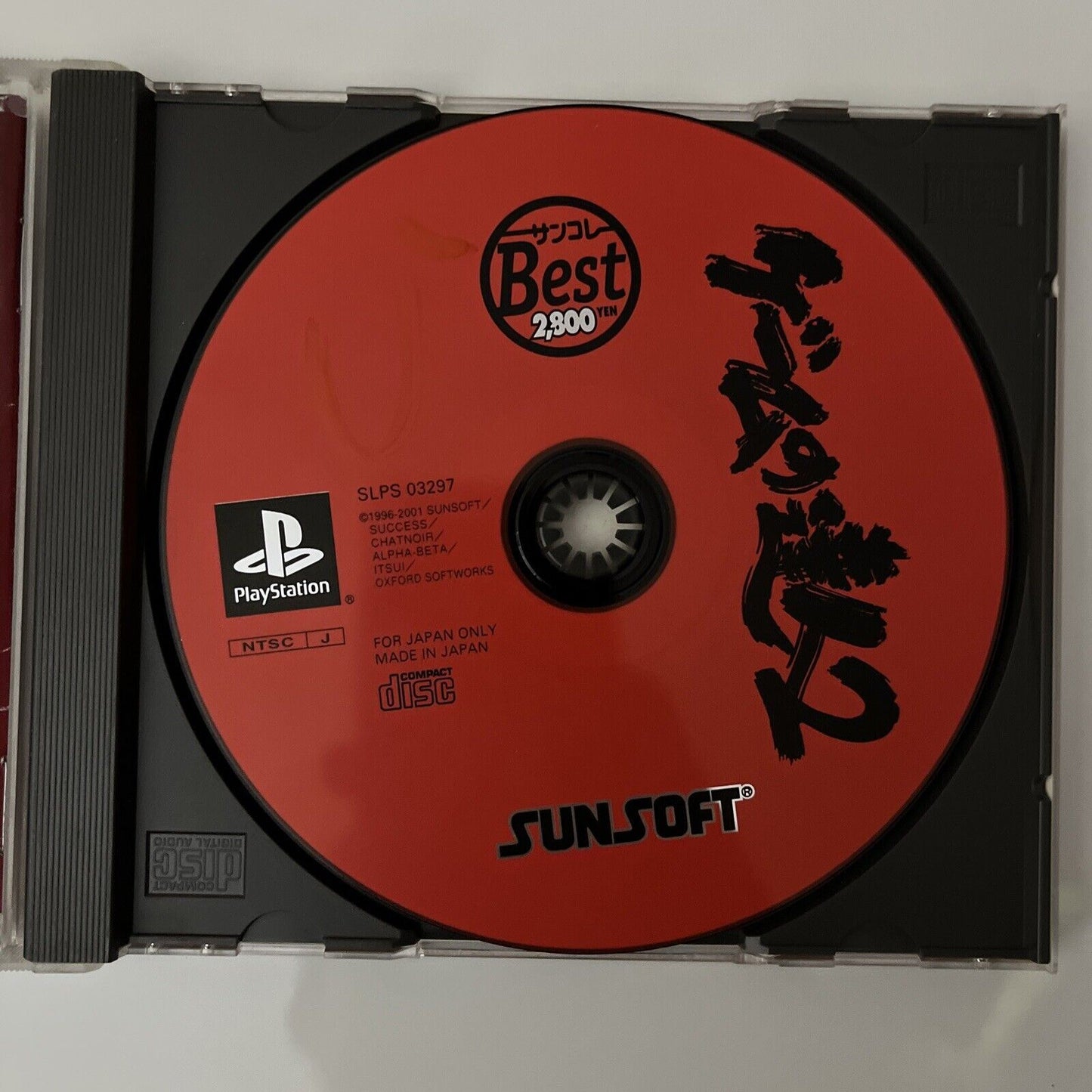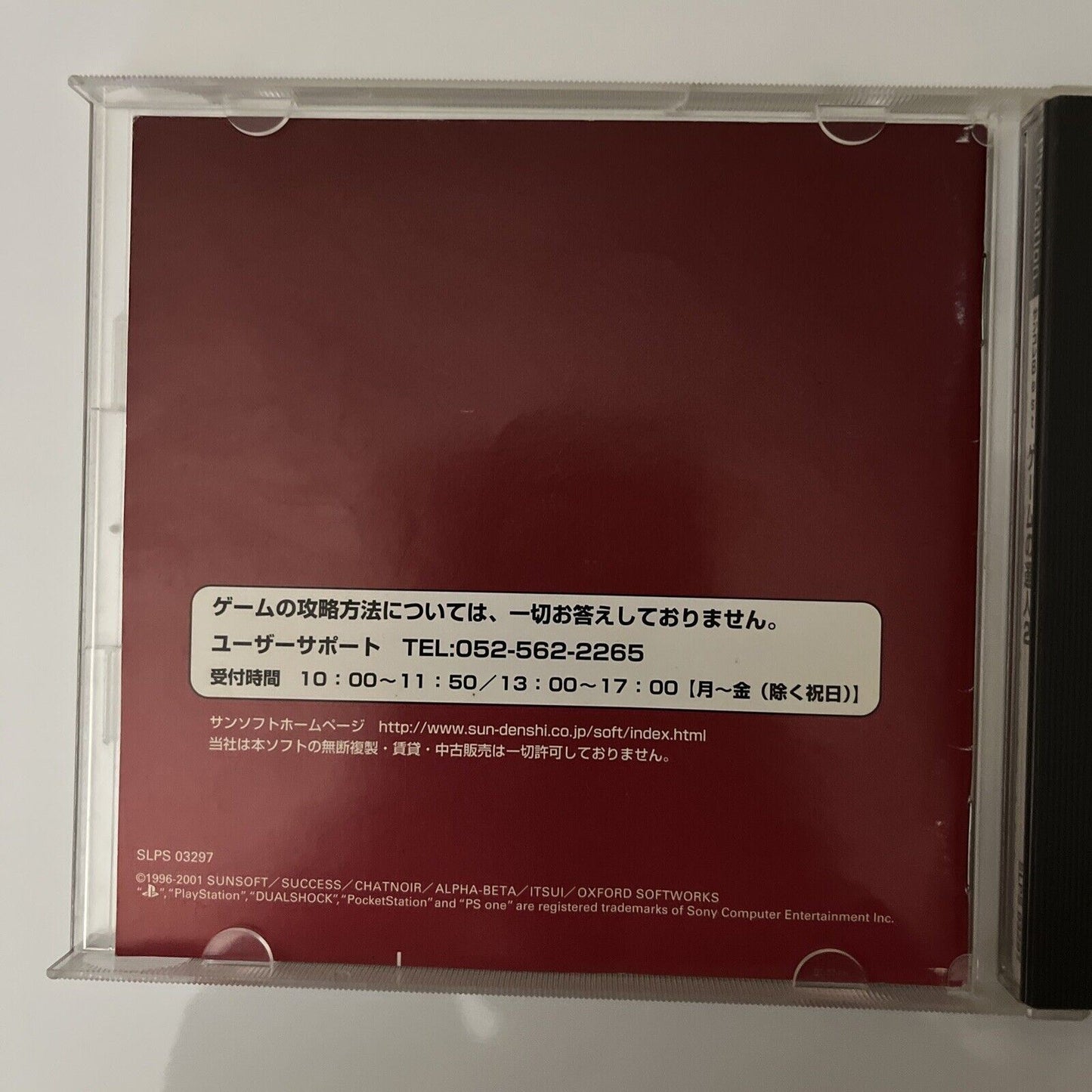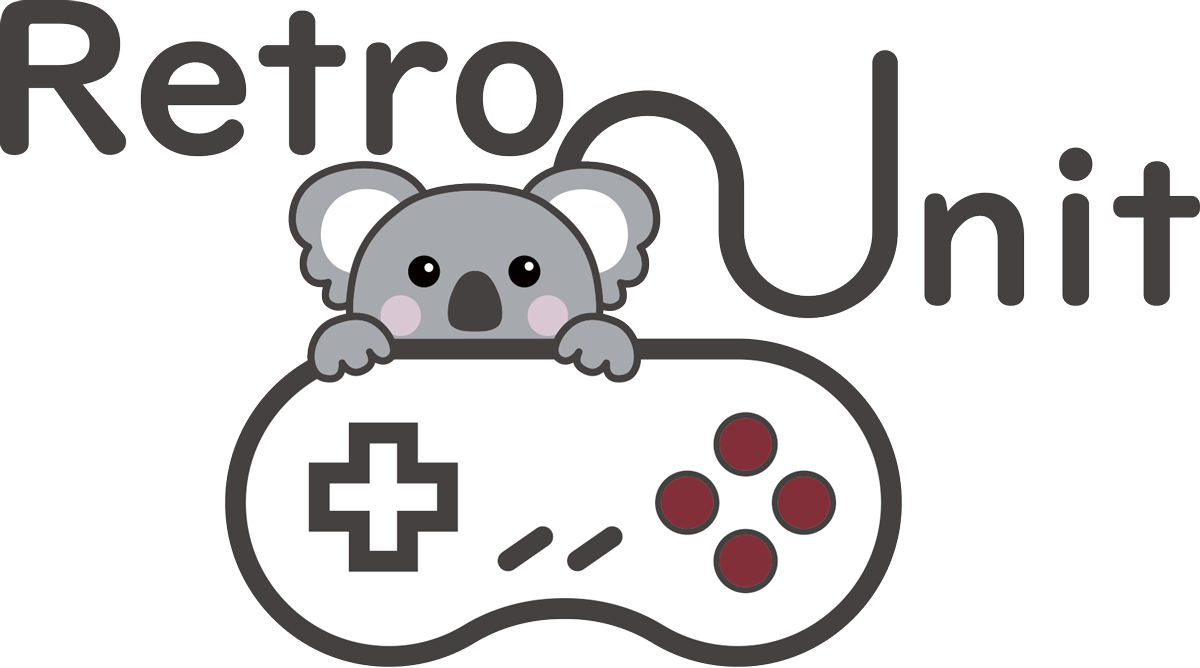Game no Tatsujin ps1.
**Please note: This is for the Japanese PS1 console or region free mod consoles!
Mahjong is a game for four players that originated in China. It was called, meaning sparrow in ancient China, which is still the name most commonly used in some southern Chinese dialects such as Cantonese and Minnan, as well as in Japanese. However, most Mandarin-speaking Chinese now call the game má jiàng.
Mahjong involves skill, strategy, and calculation, as well as a certain degree of luck (depending on the variation played, luck can be anything from a minor to a dominant factor in winning). In Asia, mahjong is also popularly played as a gambling game. In the game, each player is dealt either thirteen or sixteen tiles in a hand, depending on the variation being played. On their turn, players draw a tile and discard one, with the goal of making four or five melds (also depending on the variation) and one pair, or "head". Winning comes "on the draw" by drawing a new or discarded tile that completes the hand. Thus, a winning hand actually contains fourteen (or seventeen) tiles.
Go ("weiqi" in Chinese, "baduk" in Korean), is an ancient board game for two players that originated in China more than 2,000 years ago. The game is noted for being rich in strategy despite its relatively simple rules (see Rules of Go).
The game is played by two players who alternately place black and white stones on the vacant intersections (called "points") of a grid of 19×19 lines. Once placed on the board, stones cannot be moved. If they are surrounded by the opponent's stones, they are captured and removed from the board. The object of the game is to surround a larger portion of the board than the opponent. When a game concludes, the controlled points (territory) are counted along with captured stones or your own stones (depending on the rule-set) and a predetermined compensation ("komi") to determine who has more points. Games may also be won by resignation.
Placing stones close together usually helps them support each other and avoid capture, while placing stones far apart creates influence across more of the board. Part of the strategic difficulty of the game stems from finding a balance between these types of conflicting interests. Players strive to serve both defensive and offensive purposes and choose between tactical urgency and strategic plans. At its basis, the game is one of simple logic, while in advanced play the game involves complex heuristics and tactical analysis. Beginning players first learn the simple mechanics of how stones interact, while intermediate students learn concepts such as initiative ("sente"), influence, and the proper timing of moves.
Shogi, also known as Japanese chess, is a two-player board game in the same family as Western chess, chaturanga, and Chinese Xiangqi, and is the most popular of a family of chess variants native to Japan. Shogi means general's.
The earliest predecessor of the game, chaturanga, originated in India in the 6th century, and spread from China to Japan, where it spawned a number of variants. Shogi in its present form was played as early as the 16th century, while a direct ancestor without the "drop rule" was recorded from 1210 in a historical document Nichureki, which is an edited copy of Shochureki and Kaichureki from the late Heian period (ca 1120).
Reversi (also marketed by Pressman under the trade name Othello) is a board game involving abstract strategy and played by two players on a board with 8 rows and 8 columns and a set of distinct pieces for each side. Pieces typically are disks with a light and a dark face, each side belonging to one player. The player's goal is to have a majority of their colored pieces showing at the end of the game, turning over as many of their opponent's pieces as possible.
Game no Tatsujin 2 was also released for the SNES and Saturn consoles. Sunsoft makes a compilation of different board games like chess, reversi, igo, shogi & backgammon. The game features a Master Mode in which the player can play against the 7 masters of the seven different games. Each game features different kind of board and pieces.
Manufacturer's description:
Software popular among table games, Mahjong · Shogi · Go, Chess · Place · Renju · Backgammon software which can play 7 kinds of games. The mode has "free match mode" which allows arbitrary setting of opponent of seven kinds of game, strength of computer, rule of game, etc., and "Masters mode of battle" which fight against the strong of each of the seven kinds of games. In "Masters mode", if you win all seven people, you will be given the title of "Master of Games" so try to challenge yourself with free competition! It is!.
Br118b.14622




